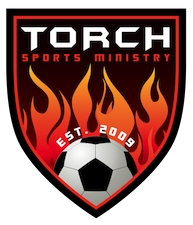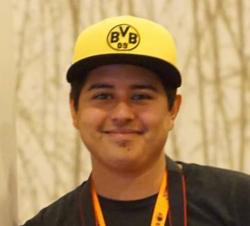WPSL Associate Commissioner Rich Sparling on Women’s Soccer
Soccer is a sport that inspires people — and many dream of taking their talents to the next level. Gone are the days when there were few opportunities to play — today, no matter where you live, if you are a woman and are passionate about soccer, playing the beautiful game is a possibility on a WPSL team. With 110 teams across the USA, the WPSL helps grow women’s soccer.
WPSL Soccer News: The Women’s Premier Soccer League (WPSL) is the world’s largest women’s league. With an amazing 110 teams this season, it is proof of the vibrancy and popularity of women’s soccer in America.
The WPSL has grown soccer communities and is even working with some National Women’s Soccer League (NWSL) clubs to provide playing opportunities for their second division and reserve squads.
Jerry Zanelli is the commissioner of the WPSL and the man behind the league who has tirelessly worked to provide opportunities for women to play soccer — but he has not accomplished this alone. Zanelli has a team of dedicated, intelligent people who share his commitment to the women’s game.
Among the many people who work to make this dream a reality is WPSL Associate Commissioner Rich Sparling, who in his own words says, “I do what Jerry needs me to do.”
“Rich has done an excellent job during his time with the WPSL,” said Zanelli. “His support for the women’s game is unmatched.”
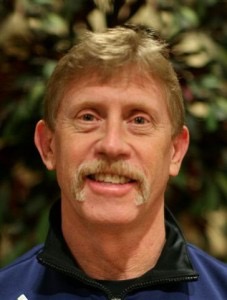
WPSL Associate Commissioner Sparling is a dedicated advocate of the game and SoccerToday’s Diane Scavuzzo interviewed him to discover what inspires this man to help further women’s soccer.
Sparling also serves as President of BuxMont Torch FC, which houses a WPSL and NPSL team based in Upper Bucks-Montgomery-Lehigh Counties, Pennsylvania. Founded in 2009, BuxMont FC is a sport ministry club that utilizes sport as a means to spread the word of God and to disciple and train sports ministers.
Sparling cites his dedication to serving God as his inspiration for growing the game, which has led him and his family to the Dominican Republic and back as they served missionaries along the way.
Diane Scavuzzo: When did you first become involved with the WPSL?
Rich Sparling: In 2008, my daughter played with the Northampton Laurels. I was very impressed with the level of play and the professional experience.
So my first involvement with the WPSL was as a parent. Later I saw the opportunity to establish a program that could be similar to what I did when I was a missionary in the Dominican Republic.
Sport is a great way to develop relationships, breakdown barriers.
Diane Scavuzzo: When did you first start coaching soccer?
Rich Sparling: I was the head soccer coach at Cairn University — known as Philadelphia College of Bible at the time — from 1977 to 1982.
Diane Scavuzzo: What team do you coach now?
Rich Sparling: I was the BuxMont Torch FC WPSL head women’s coach from 2011-2013. I have now been the men’s NPSL head coach since 2014.
Diane Scavuzzo: The league has reached 110 teams this season – what do you believe accounts for this remarkable growth?
Rich Sparling: It is really from Jerry’s vision of filling the geographic gaps where the summer experience is not women friendly. He has successfully gone after regions where there are no WPSL teams.
Quite a few of the NWSL teams have placed their reserve or academy teams in the WPSL because they believe in what we offer. We also have an excellent, sustainable business model. You can’t beat the price for the experience.
Diane Scavuzzo: How do you believe the WPSL helps further the women’s game?
Rich Sparling: Without a shadow of doubt, it provides women who are no longer in college the ability to continue to play.
For women still in college, they can prepare for the upcoming fall season, and the WPSL helps high school girls to develop and showcase their level of play.
It is the second tier of women’s soccer in America, and though all team programs are not equal, generally speaking, women soccer players can play at the highest level possible as an amateur.
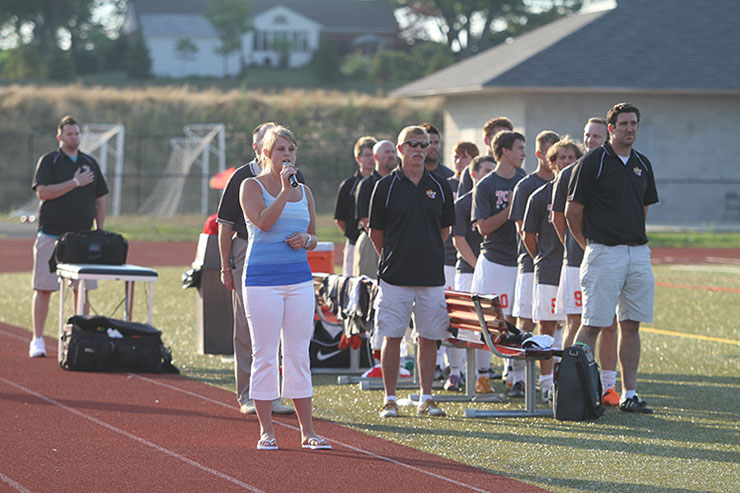
Diane Scavuzzo: What is the biggest benefit for a team?
Rich Sparling: With the growth of the league and the lower cost of membership, travel has been reduced. This means savings in travel costs as well as the possibility of creating local rivalries.
Diane Scavuzzo: What are your goals for the WPSL in the next five years?
Rich Sparling: Now that we have grown, making sure that every venue is up to par, and that member teams can take pride in the league itself is very important.

Diane Scavuzzo: What surprises most people about you?
Rich Sparling: That’s a good question. Perhaps it is that I pastor a church in Philadelphia.
Or maybe it is that I have been married to a wonderful woman for 38 years. That she and I lived in the Dominican Republic where we utilized sports as a way to develop the type of rapport with the people we got to know.
Diane Scavuzzo: When did you first start playing soccer?
Rich Sparling: When I was 5.
Diane Scavuzzo: Where did you play collegiate soccer and semi pro?
Rich Sparling: I played at Northeastern Bible College back in the early 70s when the small schools played the big schools. The team was made up of mostly missionary kids from different African countries and students from Africa.
We did very well and were the first NCCAA national champions. I can’t remember how many consecutive games we won, but what I do remember is that we lost very few games during those four years. After graduating, I played semi-professionally two years for the Boonton Booters FC in North Jersey.
I had the opportunity to play in the original NASL for the Philadelphia Fury, but that was the year they folded. Not sure what I could have done if given the chance, but my path since then has been great.
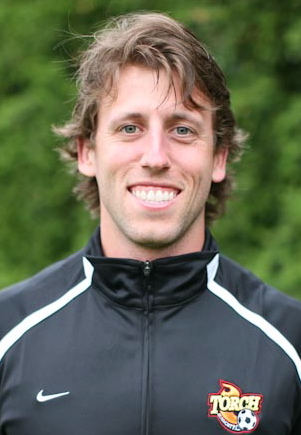
Diane Scavuzzo: Your son is following in your footsteps — What team does your son coach?
Rich Sparling: This is Richie’s first head coach job — he was raised in the home of a soccer player/coach and knows the game very well. He is a very good tactician and technician.
He was a four-year starter at Cairn University; played on the first men’s Torch team; assisted me coaching the women and was the men’s coach for two years.


